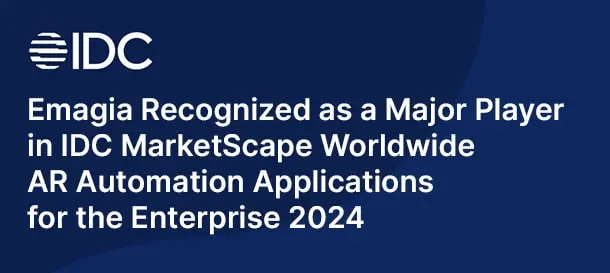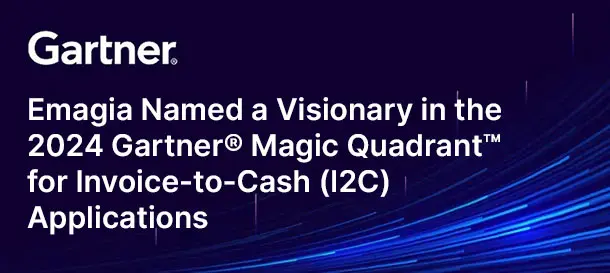In today’s fast-paced financial environment, the role of collections professionals is more critical than ever. Whether you are a collections agent, manager, or rep, understanding how to streamline your tasks, enhance efficiency, and improve recovery rates can transform your career and the success of your organization. This comprehensive guide explores everything you need to know about what is collections, collections job descriptions and duties, and effective strategies to simplify the collections job.
What is Collections? Understanding the Basics
Before diving into how to make collections professionals’ jobs easier, it’s crucial to define what is collections in the financial and business context. Collections is the process of pursuing payments of debts owed by individuals or businesses. This function plays a vital role in maintaining the cash flow and financial health of companies.
- Definition of collections in debt recovery
- Importance of collections in business operations
- Types of collections: consumer, commercial, and internal collections
Collections Job Description: Roles and Responsibilities
To improve the collections process, understanding the collections job description in depth is essential. This section outlines the typical roles found in collections teams and the duties they perform.
- Overview of collections job roles: agents, reps, managers
- Key collections job duties for agents and reps
- Responsibilities of a collections manager
- Typical skills and qualifications for collections professionals
Collections Agent Job Duties: A Day in the Life
The efficiency of collections largely depends on the agents who directly interact with debtors. Knowing the detailed collections agent job duties helps in identifying areas where technology and processes can ease their workload.
- Contacting debtors via phone, email, and letters
- Negotiating payment plans and settlements
- Documentation and reporting of debtor communications
- Handling disputes and verifying debts
- Using collections software and CRM systems
Collections Rep Job Description: Key Functions and Challenges
Similar to agents, collections representatives play a frontline role in debt recovery. This section breaks down the collections rep job description, highlighting the overlap and differences with other roles.
- Outreach strategies and debtor engagement
- Managing accounts and prioritizing collections efforts
- Compliance with legal regulations in collections
- Maintaining customer relations while ensuring payments
Collections Manager Vacancies: What Employers Are Looking For
Understanding the current market demand for collections management positions provides insights into evolving responsibilities and skills required.
- Overview of collections manager vacancies
- Trends in hiring: skills, experience, and certifications
- Managerial duties: team leadership, strategy development, performance monitoring
- Tools and technology managers use to support teams
Collections Job Duties: Common Tasks Across Roles
This section aggregates all essential collections job duties to give a complete picture of what a collections professional does daily, enabling identification of pain points and opportunities for improvement.
- Daily communication and follow-ups
- Payment processing and tracking
- Reporting and analytics
- Legal and compliance adherence
- Customer relationship management
What’s Collections? Clarifying Common Misconceptions
Sometimes the term collections is misunderstood or confused with other financial processes. This section addresses whats collections in simple terms to clarify its purpose and scope.
- Difference between collections and credit management
- How collections impact business profitability
- Common myths and facts about collections jobs
How to Make Collections Professionals’ Job Easier: Proven Strategies
Now that we understand the scope of collections, the core question is how to make the collections professionals job easier. This section offers actionable tips, techniques, and tools.
- Automating routine communication and reminders
- Implementing AI-driven analytics for better debtor scoring
- Training and continuous education for collections staff
- Using omnichannel communication platforms
- Simplifying dispute resolution processes
- Streamlining payment options and portals
Technology in Collections: Tools That Transform Collections Job Description
Technological advances have revolutionized the collections landscape. This section delves into how collections technology improves the collections job description and duties.
- Collections management software overview
- Predictive dialers and automated calling systems
- Data analytics for identifying risk and prioritizing accounts
- Integration with CRM and ERP systems
- Mobile apps and self-service portals for debtors
Emotional Intelligence and Communication: Soft Skills for Collections Agents and Reps
Making the collections job easier isn’t just about technology. Soft skills are crucial for effective debt recovery.
- Importance of emotional intelligence in collections
- Active listening and empathy in conversations
- Conflict resolution and negotiation tactics
- Maintaining professionalism under pressure
Managing Stress and Burnout in Collections Professionals
The collections role can be demanding and stressful. Strategies to manage workload and mental health help in improving job performance.
- Recognizing signs of burnout in collections teams
- Stress management techniques
- Importance of breaks and work-life balance
- Organizational support and resources
The Future of Collections: Trends and Innovations
Understanding future directions can help collections professionals stay ahead and simplify their work further.
- AI and machine learning applications
- Blockchain and secure transactions
- Robotic process automation (RPA)
- Enhanced compliance and data security measures
How Emagia’s AI-Powered Platform Eases Collections Professionals’ Job
Emagia is an innovative AI-powered platform designed specifically to improve collections job duties and overall efficiency for collections teams. Here’s how Emagia helps transform the collections workflow:
- AI-driven customer segmentation and prioritization
- Automated communication workflows to reduce manual tasks
- Real-time analytics for performance tracking
- Seamless integration with existing systems
- Enhanced compliance management tools
- Personalized customer interaction based on behavior analysis
Emagia’s technology empowers collections professionals by automating repetitive tasks, reducing workload, and allowing them to focus on strategic recovery activities — making the collections job easier and more productive.
Frequently Asked Questions (FAQs)
What is collections in finance?
Collections in finance refers to the process of recovering unpaid debts from customers or clients. It involves contacting debtors, negotiating payment plans, and ensuring timely collection of outstanding amounts to maintain healthy cash flow for businesses.
What are the typical collections job descriptions and duties?
Collections job descriptions typically include contacting debtors, negotiating payments, maintaining accurate records, handling disputes, and ensuring compliance with legal regulations. Duties vary by role, with agents focusing on direct debtor interaction and managers overseeing team performance and strategy.
What does a collections agent do daily?
A collections agent’s daily duties include reaching out to debtors via phone, email, or letters, negotiating payment arrangements, documenting interactions, following up on overdue accounts, and using collections software to track progress.
What are the key responsibilities in a collections manager vacancy?
Collections managers are responsible for leading the collections team, developing strategies to improve recovery rates, monitoring individual and team performance, ensuring compliance with regulations, and liaising with other departments to streamline operations.
How can technology make the collections job easier for professionals?
Technology automates repetitive tasks such as reminders and follow-ups, uses data analytics for better prioritization of accounts, supports omnichannel communication, simplifies reporting, and helps ensure regulatory compliance—thus reducing workload and improving efficiency.
What skills are important for collections reps and agents?
Important skills include strong communication and negotiation, emotional intelligence, problem-solving abilities, familiarity with collections and CRM software, attention to detail, and knowledge of relevant laws and regulations.
How can collections professionals manage stress and avoid burnout?
Managing stress involves recognizing burnout signs early, taking regular breaks, maintaining work-life balance, using stress management techniques such as mindfulness, and having organizational support through counseling or wellness programs.
What is the difference between a collections agent and a collections rep job description?
While both roles involve contacting debtors and recovering payments, collections agents often focus more on initial outreach and negotiation, whereas collections reps may handle more complex accounts, follow-up communications, and dispute resolution.
What are the most common challenges faced in collections jobs?
Challenges include dealing with uncooperative or hostile debtors, managing large volumes of accounts, keeping up with changing regulations, maintaining motivation in a stressful environment, and handling disputes effectively.
How does Emagia help make the collections professionals’ job easier?
Emagia offers an AI-powered platform that automates routine communications, analyzes debtor data for smarter prioritization, provides real-time performance analytics, ensures compliance, and streamlines workflows—freeing collections professionals to focus on higher-value tasks and improve recovery rates.



